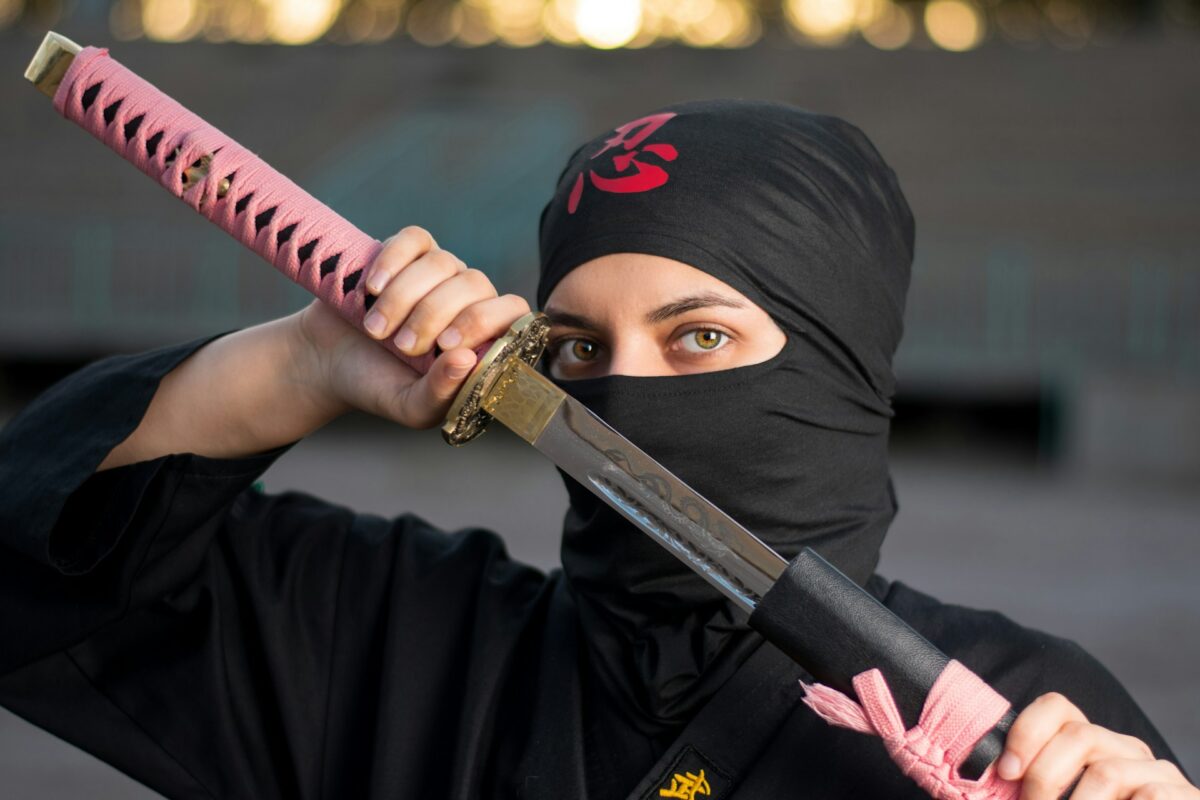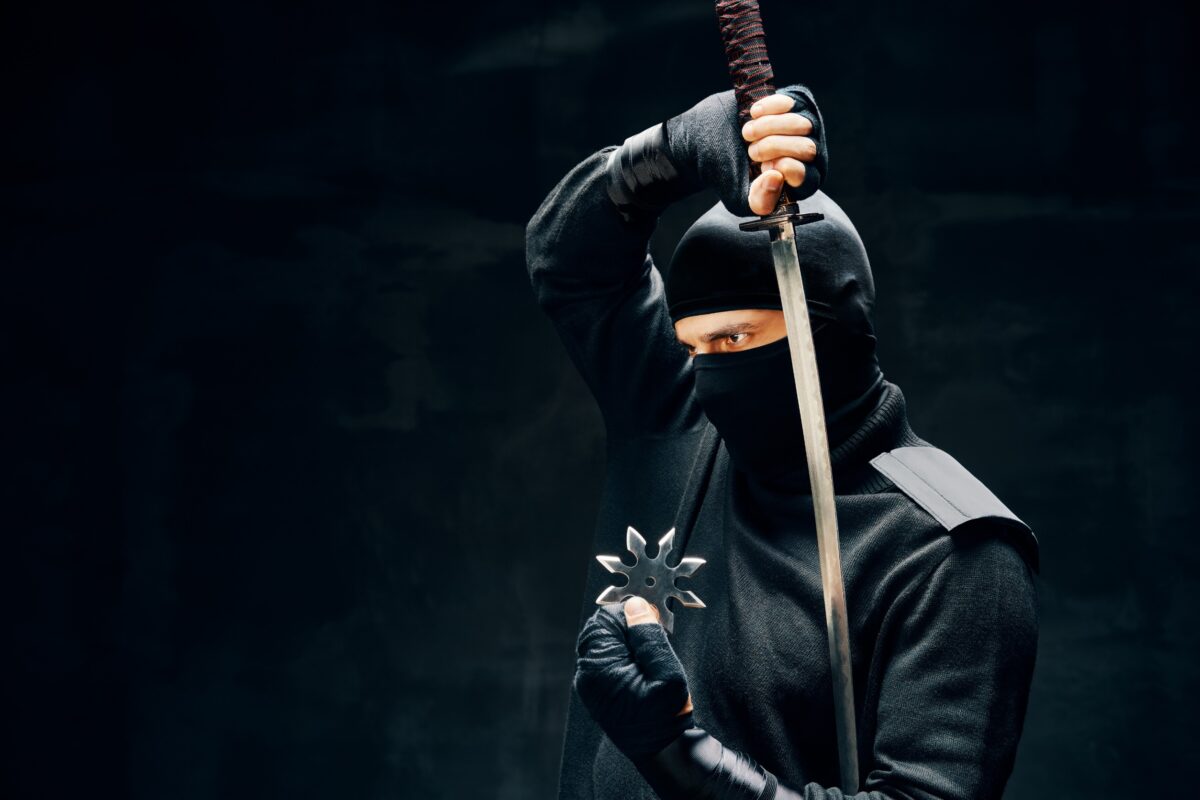Shrouded in mystery and steeped in centuries of tradition, ninja swords have captivated the imagination of martial arts enthusiasts, historians, and collectors alike. These legendary blades, once wielded by the elite covert agents of feudal Japan, have transcended their utilitarian purpose and become revered symbols of the ninja’s stealth, precision, and unwavering dedication.
In the UK, the allure of ninja swords has only grown stronger over time, fueled by a fascination with Japanese culture and the enduring appeal of these formidable weapons. While their historical significance is undeniable, owning and appreciating these blades in the modern era requires a deep understanding of their craftsmanship, legality, and the respect they command.
The Art of Ninja Swords
Ninja swords, also known as ninjatō, are a distinct class of Japanese blades that were designed specifically for the covert operations and close-quarters combat techniques employed by the ninja. These swords are characterized by their compact size, razor-sharp edges, and exceptional maneuverability, making them ideal for stealth missions and quick, decisive strikes.
Authentic ninja swords are handcrafted masterpieces, with each blade undergoing a meticulous forging process that involves folding and hammering the steel numerous times to create a resilient and flexible core. The expertise of the swordsmith is evident in the intricate details, such as the hamon (temper line) and the precisely shaped tsuba (hand guard), which not only enhance the sword’s aesthetics but also contribute to its performance and balance.
Identifying Genuine Ninja Swords

In the bustling market for Japanese swords, distinguishing a genuine ninja sword from a replica or imitation can be a daunting task for the untrained eye. However, there are several key characteristics that can help you identify an authentic blade:
- Blade Length: Genuine ninja swords typically have a blade length between 20 and 30 inches, shorter than a traditional katana but longer than a tanto.
- Blade Shape: The blade should be straight or slightly curved, with a distinctive chisel-like tip and a single-edged design.
- Tsuba (Hand Guard): The tsuba of a ninja sword is often square or rectangular, providing ample protection for the hand during close-quarters combat.
- Craftsmanship: Look for signs of expert craftsmanship, such as a well-defined hamon (temper line), precise fittings, and a balanced weight distribution.
- Provenance: Reputable sellers and collectors should be able to provide documentation or certification attesting to the sword’s authenticity and origin.
Where to Buy Ninja Swords in the UK
For those seeking to add a genuine ninja sword to their collection or practice, the UK offers several reputable sources. One of the most highly regarded online retailers is katana-uk.com. This esteemed establishment has built a reputation for sourcing high-quality Japanese swords directly from renowned swordsmiths in Japan, ensuring the utmost authenticity and craftsmanship.
At katana-uk.com, you’ll find a diverse selection of ninja swords, ranging from battle-ready blades to exquisite ornamental pieces. Their knowledgeable staff can guide you through the process of selecting the perfect sword, taking into account your intended purpose, budget, and personal preferences. Additionally, they provide comprehensive documentation and certification for each blade, ensuring that you can trace its lineage and provenance.
The Legal Landscape of Ninja Swords in the UK
While the allure of owning a ninja sword is undeniable, it’s crucial to understand the legal implications and regulations surrounding their possession and use in the UK. Contrary to popular belief, ninja swords are not inherently illegal in the country, provided they meet certain criteria.
Under UK law, it is legal to purchase, possess, and practice with a ninja sword if it is a genuine martial arts product crafted by skilled swordsmiths using traditional methods. However, there are restrictions on carrying these blades in public spaces or using them for unlawful purposes, as they are considered offensive weapons.
It is important to note that the legality of ninja swords hinges on their authenticity and purpose. Replicas or imitations that are not intended for martial arts practice may be subject to different regulations or outright bans. Additionally, any use of ninja swords in a threatening or violent manner is strictly prohibited and can result in severe legal consequences.

Respecting the Legacy of Ninja Swords
Beyond the legal considerations, owning a ninja sword carries a profound responsibility to honor and respect the rich cultural heritage it represents. These blades are not merely weapons or collectibles; they are a tangible link to the centuries-old traditions of the ninja and the samurai warriors who wielded them with utmost skill and discipline.
For collectors and practitioners alike, appreciating a ninja sword means embracing the values of honor, integrity, and mastery that were embodied by the legendary ninja warriors. Whether displayed as a prized possession or used for training and practice, these swords demand the utmost reverence and care, ensuring that their legacy is preserved for generations to come.

